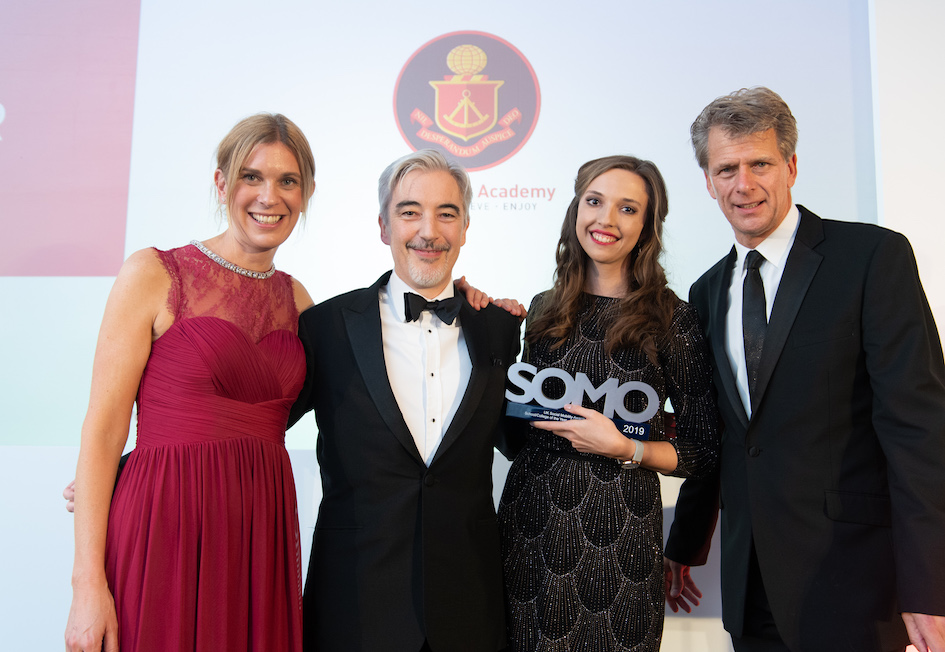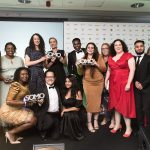Claire Ungley (middle, right), Aspirations Coordinator at Southmoor Academy, collecting the ‘School/College of the Year’ award
In the unique British education system, where those who attended private or selective schools have a firm grip on the upper echelons of society, comprehensive schools are having to develop increasingly creative ways ensure their students have something resembling equal opportunities. To celebrate those schools that are taking matters into their own hands and inspire others to develop their own initiatives, we launched the ‘School/College of the Year’ award for the UK Social Mobility Awards 2019.
The inaugural winners were Southmoor Academy, based in Sunderland. We spoke to their Aspirations and OxNet Coordinator, Claire Ungley, to find out what strategies they have devised to give their students, and those in the surroundings areas, the chance to reach their full potential. The first impression you get when speaking to Claire is the passion she has for social mobility.
“For society broadly, if talented people can’t climb the ladder we miss out on those skills, so it benefits the economy and the whole country.”
“It’s close to my heart. My parents hadn’t gone to university, so I didn’t know what to expect and didn’t have advice on how to choose a course. I define social mobility as being able to move up the social ladder. It could be to do with qualifications, wealth, your job, cultural capital or a mixture of those things.
“It’s also about not wasting talent – we need young people to know what opportunities are out there and how they can achieve them. They need to feel like any choice is right for them and that they have ownership of their choices. For society broadly, if talented people can’t climb the ladder we miss out on those skills, so it benefits the economy and the whole country.”
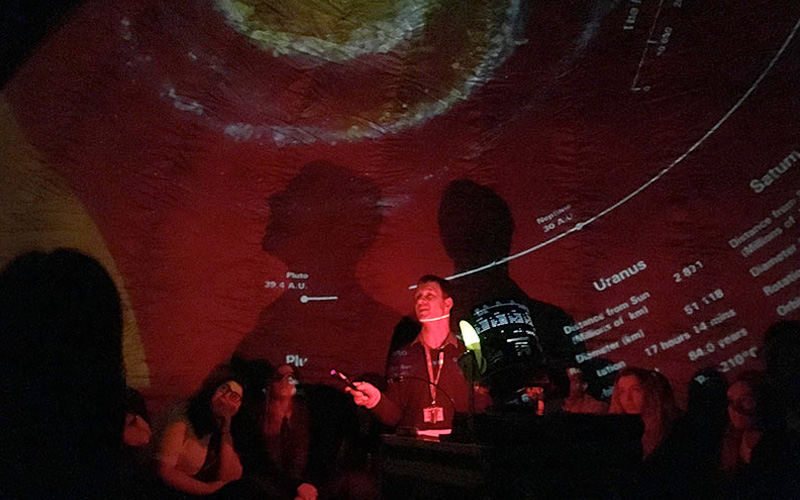
Scholars seeing the solar system from a new perspective
This passion manifests as a holistic programme that covers pupils from primary school to the end of sixth form, coupled with a flair for innovative solutions that truly imbue confidence. Claire summarises her activities as Aspirations and OxNet coordinator, and those of Southmoor Academy more broadly, in the following way.
“I’m partly employed as the Aspirations Coordinator for Southmoor Academy. In that role I work with students across all ages, including primary school, to deliver the programme on a day-to-day basis. I’m based in the sixth form, run the study skills sessions, and link all the widening participation schemes across universities. I also arrange university trips for all age groups, I’ve designed an aspirations scheme of work for personal development time and a ‘Scholars’ programme for high-achieving year 10 students.
“The scholars programme is a year-long initiative where students experience taster sessions, including different guest lecturers from different universities every week. These range from skeleton science and comic book drawing, to cosmology and Harry Potter! Local universities participate but we also have links with Oxford, Leeds and others. The students design their own academic projects and graduate with caps and gowns at Durham University.”
“The Vice Principal, Sammy Wright, sits on the Social Mobility Commission…He makes students feel like they can play a part in making a change because he takes their ideas to the Commission.”
The programmes that Southmoor Academy has in place are not merely aiming to provide students with insights into the world of higher education but to give them the confidence to know that when they arrive, they can succeed. It is one thing to reach a destination but another thing entirely to feel that you belong. That largely comes from being prepared for the kind of challenges that you will be faced with, a skill that only develops with practice. The younger you begin this practice, the more natural it becomes, which explains Claire’s further activities.
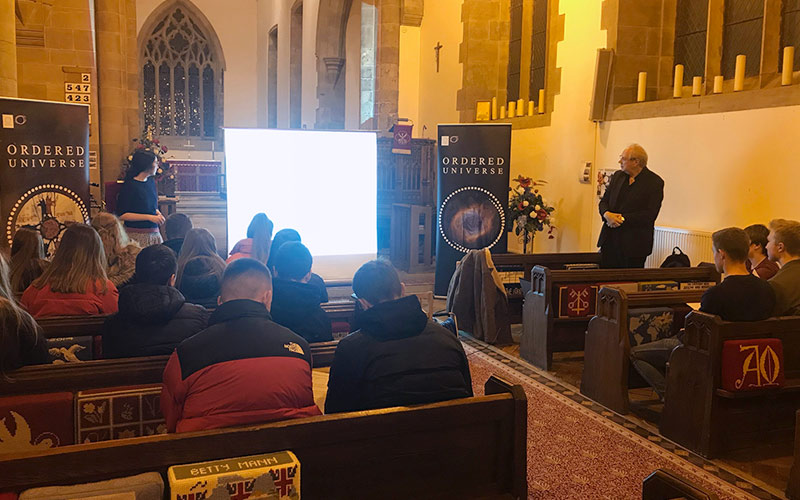
The Ordered Universe’ seminars
“My primary school responsibility is going out to various feeder schools and running aspiration days with years four, five and six. Each year group has three sessions to do with aspirations. Year four focus on skills to be successful, such as curiosity, resilience and excellence. Year five look at careers and how higher education provides a route to caring, STEM and creative careers. Year six look specifically at what university is, what you can study and how to get there.
“I’m also the Higher Education champion for NECOP, as well as being part-employed by Oxford University. In terms of my Oxford role, I run the OxNet North-East programme for year 12 students. They take part in a seminar series in collaboration with ‘The Ordered Universe’ – an international research project – as well as an Easter residential at Durham University, and a week-long summer school at Oxford, where they work with top academics.”
Of course, Claire is not acting in isolation and none of this would be possible without top-down support. Just as in business, new strategies require enforcement and accountability at all levels. It is testament to the success of Southmoor Academy’s schemes that they are core to their work, rather than embellishments.
“The young people don’t know what’s out there, so they stick with what they know. A lot of them like pathways that seem linear because they want to know what job they’ll be doing after university.”
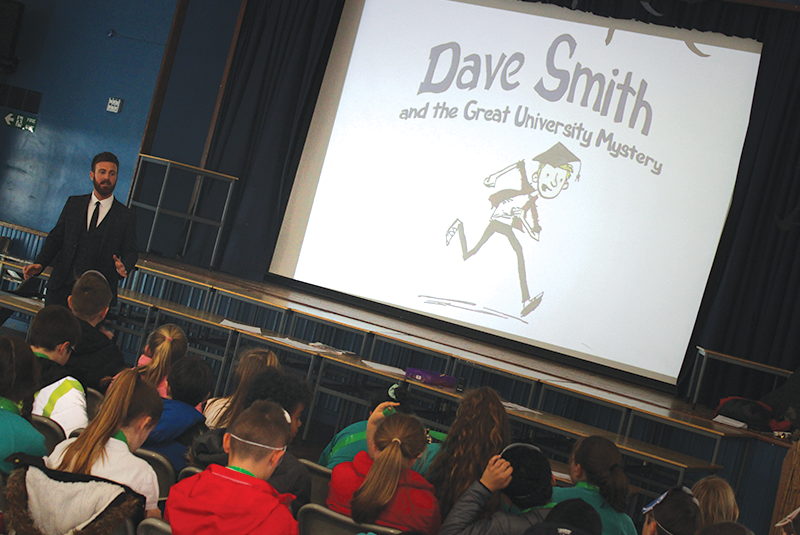
“The Vice Principal, Sammy Wright, sits on the Social Mobility Commission, so he has a personal interest in social mobility and helps get it on the whole school agenda. He makes students feel like they can play a part in making a change because he takes their ideas to the Commission. The Principal, Steve Garrett, is also keen to promote aspirations – he makes the students feel special and enthused about their activities. Lianne Bagshaw, the Head of Sixth Form, is also a great supporter of running super-curricular events within the Sixth Form.”
Initiatives like this can make a huge difference across the UK if carried out with the commitment and creativity that Southmoor Academy has engendered, particularly considering the balancing act that all schools are playing with time, resources, the pressure of league tables and results, and Ofsted. There are, however, some unique challenges to Sunderland and the North-East that Claire has identified.
“I used to work in Hartlepool and now in Sunderland, and I’ve noticed there is an idea that people don’t want to move away from home – it is just not considered an option. There are also feelings of ‘people like me don’t go there,’ but when you get there you realise people are like you and even if they’re not, you can still be friends with them. I was speaking to students this morning who are applying to study pharmacy and there are only two universities in the North-East that offer it, so they won’t use the other three options. It means there are potential opportunities missed.
“To compound that, certain professions are more prominent than others in the North-East. Nursing, teaching and engineering are big, but others not represented as much. The young people don’t know what’s out there, so they stick with what they know. A lot of them like pathways that seem linear because they want to know what job they’ll be doing after university.”
“Their experiences with us meant they knew about lectures and courses, so being able to answer those questions filled them with confidence.”
It is at this sticking point that the great intangible, confidence, really comes into play. When regional identity is added to personal feelings of belonging, confidence becomes even more essential yet also scarcer. There is some logic to this. If you have come from a selective school, wherever in the country it is located, there is a high chance that the university you go to will be largely made up of people who’ve had similar experiences to you. It means people will understand your background and have the tools ready to help you overcome any issues. As the students Southmoor Academy works with progress through their schemes, it becomes increasingly clear how this sense of belonging is developed.
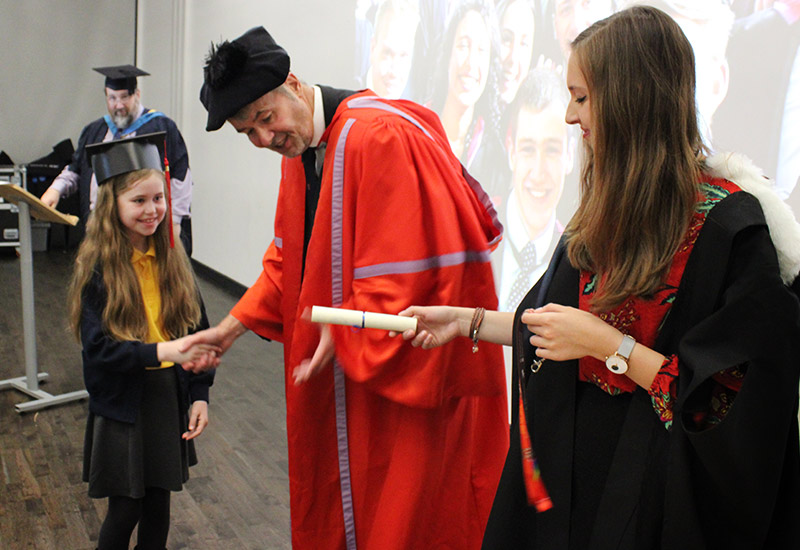
Primary Graduation
“We had a year five graduation event and then saw the same group again for year six open evening, so we got to build on that relationship. The year sevens had workshops with Northumbria University and the first question they were asked was what they know about university. Their experiences with us meant they knew about lectures and courses, so being able to answer those questions filled them with confidence.
“In terms of academic success, the end-of-year projects that the scholars in year 10 complete are a real testament to how far they’ve come. They either write a 1000-word essay or create an artefact. It’s a very independent theme and there are high expectations from the start, which replicates what university will be like.
“I was blown away by some of the projects they did. Some students looked at the impact that 1066 had on linguistics while another, who wants to be a doctor but is passionate about art, combined her two interests by looking at medical and artistic depictions of the brain from mediaeval times to now. She created a stunning piece of art to compare the two. Academically they go further than their peers and then their parents come to the graduation, so they have that support and appreciation for what they’ve achieved.”
“Competition was stiff, and it was amazing to see the case studies of what other schools and colleges are doing, but it also gave us a sense that we are doing something special.”
With time and practice, the idea of going to university and understanding of what it entails is solidified in an individual, giving them the confidence to know they can be successful. It is a remarkable programme and one we were delighted to celebrate with our inaugural ‘School/College of the Year’ award. For Claire, it is clear that the external recognition gained by the award was a significant step towards their long-term goals of raising aspirations for all young people.
“It was amazing to be recognised on a national scale. Because it’s so public, it makes others stand up and listen. We’ve had so many comments and people asking about what it is because we have banners up around the school and in our email signatures. It’s getting that conversation started and it’s a way to measure something intangible. It makes it official.
“Competition was stiff, and it was amazing to see the case studies of what other schools and colleges are doing, but it also gave us a sense that we are doing something special. It was a lovely way to end the previous academic year and start this year off. It really means something to win an award. It’s a reminder that what we do matters.”
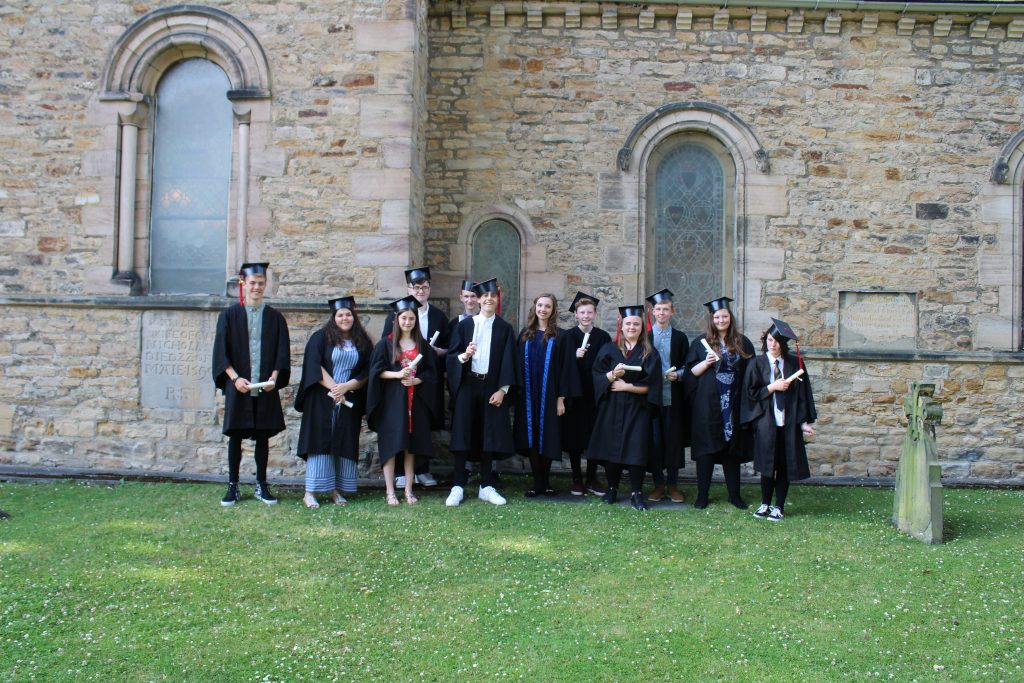
‘Scholars’ programme graduation
It is nice to know that what you do matters. It seems that for a long time, business and education have been entirely focused on very tangible, quantifiable things like profit margins, exam results, shareholder dividends and university admission. There is no denying that these things matter. What is also undeniable, however, is that to focus so intently on them is to ignore those other things that are less easily measured but just as vital for outcomes.
Aspirations come within that bracket. To raise aspirations for young people they can’t simply get better grades or have new experiences – there is too much personal history that goes into it. As Aspirations Coordinator, Claire has a deep understanding of what that entails and believes it can be the link between repeating the same old mistakes or doing things differently to create positive change.
“I think every school, just like they have career advisors, should have an aspirations coordinator whose entire job is focusing on social mobility, building an agenda for the whole school and getting to know the students in that capacity. It can’t be an add-on.”
Time will tell whether this approach is widely adopted, but by sharing the success of schools like Southmoor Academy, by showing what can be achieved with a clear social mobility plan that is core to everyday business, we can inspire more institutions to do things differently and reap the benefits for the whole of the UK.
Follow the UK Social Mobility Awards on social media for all the latest news and updates.
